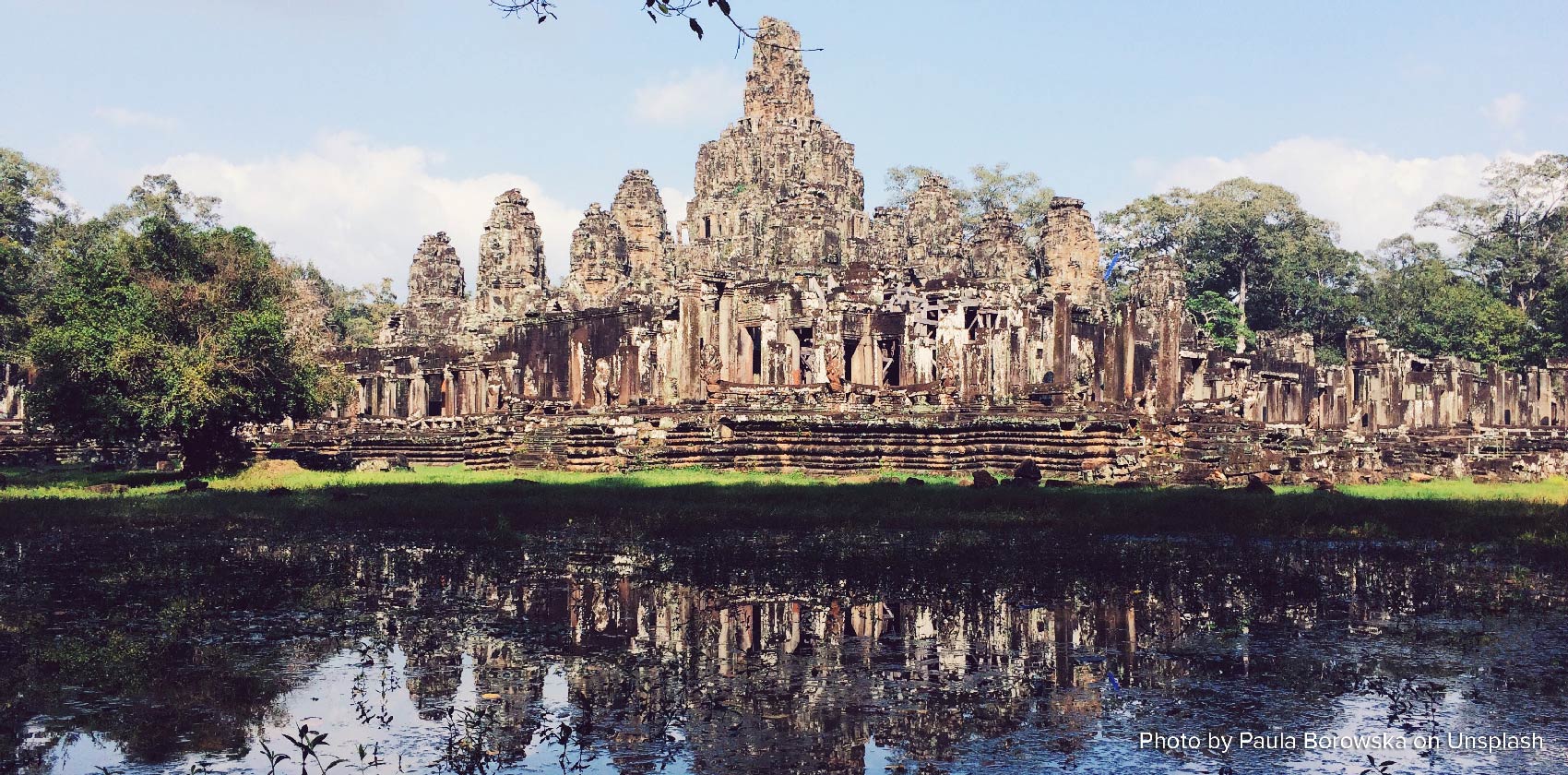
31st LAWASIA Conference in Siem Reap, Cambodia
Suang Wijaya was one of the recipients of the Law Society’s sponsorship for young lawyers to attend overseas conferences. As part of the sponsorship, the recipient must submit a paper on the conference that he or she attended.
I had the privilege of attending the 31st LAWASIA Conference in November 2018, with the sponsorship of the Law Society’s Young Lawyer’s Committee. The conference was held over four days in Siem Reap, Cambodia. Lawyers from more than 10 jurisdictions, including China, Japan, India, Australia, Hong Kong, and almost all countries in Southeast Asia, attended the conference.
When I arrived in Siem Reap, I was struck by the prominence of the Chinese language everywhere I went. There were many street signs and advertisements in Chinese. I also saw numerous Chinese restaurants, with cuisines from virtually all regions of China. I was later informed that the extent of Chinese investment is more pronounced in the southern coastal provinces of Cambodia.
The opening ceremony was held on Friday 2 November 2018. Among other people, the current LAWASIA President, Mr Christopher Leong, spoke. He spoke about the work of the LAWASIA Human Rights Section over the past year. He expressed concern at the constitutional crisis that was then developing in Sri Lanka, where Sri Lanka’s president had dismissed the Prime Minister, although the Prime Minister commanded the majority of Parliament. Mr Leong emphasised the importance of human rights and the rule of law. He reiterated LAWASIA’s commitment to advancing human rights and the rule of law.
The heavy presence of Chinese investment in Cambodia provided a fitting backdrop for the presentations and panel discussion on China’s Belt and Road initiative, which I attended on the second day of the conference. Lawyers from China, Hong Kong and Indonesia spoke. They spoke about the immense opportunities that the Belt and Road Initiative has brought for lawyers in the region. They shared insights on the potential risks that Chinese investors may face in the various jurisdictions which have been penetrated by the Belt and Road initiative. Some of the topics discussed included corporate structures investors may wish to adopt, the Chinese government’s policies with respect of the Belt and Road initiative, dispute resolution practices, and more.
In the Environmental Dispute Resolution panel discussion which I attended next, I found the presentation by Ms Geeta Luthra, an advocate of the Supreme Court of India, the most interesting. She spoke about the numerous high-profile public interest litigation cases which had come before the Supreme Court of India. In those cases, the Supreme Court of India had, among other things, ordered the India authorities to take concrete steps to reduce pollution in New Delhi and reverse the deterioration of the Taj Mahal. However, despite the well-intentioned rulings of the Supreme Court, pollution and environmental degradation in India remains at a stubbornly high level. Ms Luthra opined there was still significant work to do with respect to environmental protection in India; it is not realistic to expect the Supreme Court’s orders to be a panacea to these environmental problems. Mr Phanna Sok from Cambodia’s School of Field Studies also gave an interesting presentation. His topic was on climate change litigation in Cambodia. He covered the issues of what constitutes a climate change offence in Cambodia, who had legal standing to bring climate change litigation, the procedure by which environmental law litigation is handled, and what was the statutory framework in relation to climate change litigation. I was fascinated at how developed Cambodia is with respect to specific laws and even procedures for disputes relating to climate change. Perhaps this was because Cambodia, with its numerous freshwater lakes and rivers as well as other natural resources, may be impacted by climate change to a greater extent than an urban country like Singapore.
One of the most interesting panel discussions I attended was the Young Lawyer’s Forum. Lawyers from the Netherlands, Japan, Malaysia and Vietnam spoke. The most debated topic in that session was the impact that Artificial Intelligence would have on the work of young legal professionals. The panel was unanimous in its view that Artificial Intelligence would significantly disrupt the legal profession. They discussed how more menial and tedious tasks which were often performed by junior lawyers (for which clients pay heftily), such as discovery and due diligence, will sooner or later be automated or Artificial Intelligence-augmented. This necessitates a dramatic re-thinking of how the law firm of the future should be re-structured. Another hot topic was the professional development of young lawyers. All the panel members shared their own personal experiences. Mr Zi Li Tay, for instance, hugely benefited from Malaysia’s ZICO Law’s expansion into numerous jurisdictions in Southeast Asia. Having practised in Malaysia and now working in Vietnam, Mr Tay has gained considerable insight and experience in working in different cultures and legal systems. As for Mr Daniel Albert, he spent his formative professional years learning the ropes from a respected lawyer in Malaysia, before setting up his own practice. Besides sharing their own experiences, they fielded numerous questions from the floor. Many junior (and not so junior) attendees also shared their own insights into the hot topics which were being discussed. It was a very fruitful session.
On the third day, I attended a panel discussion on comparative land law between different jurisdictions. This was also a memorable session from me. I learnt, for instance, that in Cambodian land law, there were: (a) laws; (b) sub-decrees; (c) implementing regulations; and, somewhat alarmingly (d) “unwritten” policies and practices which “also play an important role in the legal implementation”. For the presentation on India, the revolutionary Real Estate (Regulation and Development) Act, 2016, was discussed. Previously, legal disputes relating to property developments were not efficiently dealt with in the Indian courts. With this new Act, real estate projects had to be registered, and there were stringent requirements governing progress payments by property purchasers. Non-compliance with the regulations of this Act would result in severe penalties for developers. The Act also provided for a specialised Real Estate Regulatory Authority and Appellate Tribunal, for the speedy resolution of property-related disputes. Mr Eu Jin Ong from Malaysia then spoke about the Torrens system of land registration in Malaysia – a revision class for me!
I also attended the session on family law. Mr Rajan Chettiar spoke about collaborative family lawyering. Before this, I had not heard of collaborative family lawyering before, so I found Mr Chettiar’s talk very illuminating. I was surprised to learn that collaborative family lawyering had already been implemented in our Family Justice Courts. I also learnt that collaborative family lawyering involves a completely different type of lawyering than what we had been used to. For instance, in collaborative practice, correspondence between lawyers is kept to a minimum – as much as possible, parties and lawyers attend without-prejudice settlement negotiations with a commitment to having the matter settled out of court. In the event that collaborative lawyering fails to achieve a resolution, the collaborative lawyers would then be compelled to discharge themselves from acting in subsequent court proceedings.
Other than the various panel discussions, I enjoyed the many opportunities we had to interact with lawyers from other jurisdictions, whether during tea breaks, lunches, or the dinners on the first and second days. These interactions made me realise how important it is that I should not simply remain in a “bubble” in Singapore. It is crucial to realise that outside Singapore, there are numerous countries with vastly varying legal traditions, which are experiencing breakneck and significant developments which will inevitably impact practice in Singapore.
All in all, I found my trip very fruitful indeed. I am very thankful to the Law Society for giving me this meaningful opportunity.






